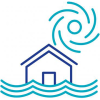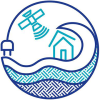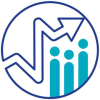Recommendations » For stakeholder groups:
Drivers of stakeholder recommendations
From the PILNA 2021 results, SPC-EQAP has identified key findings that may justify immediate action and attention. These findings underpin the more specific recommendations at the stakeholder level.
- Learners and their performance
- Student performance decreased in many areas from 2018 to 2021.
- Numeracy performance decreases were larger than reading and writing performance decreases.
- Reading performance is struggling to increase substantially over time.
- Year four writing performance increased substantially from 2018 to 2021.
- Girls scored higher than boys in numeracy, reading and writing, as they did in past PILNA cycles.
- Early childhood education attendance, parental education, household wealth, language of assessment, caregiver support, student attitudes to subjects/school, and well-being are associated with student performance in literacy and numeracy.
- Student experiences
- Student behavioural and cognitive challenges affect a substantial number of students.
- Many students are experiencing challenges to their well-being.
- Pacific learning environments
- Some schools have inadequate or insufficient infrastructure.
- Some schools have inadequate or insufficient amounts of instruction materials.
- Some schools have too few teachers, particularly qualified teachers, and experience challenges with teacher absenteeism.
- School closures affected the instruction of many students in the region and different countries may have been disproportionately affected by these closures.
- Physical continuity of learning measures was more common than non-physical measures, including digital measures.
- Experiences of the education workforce
- Many teachers do not have enough time to spend with slow learners.
- More teachers appear to be confident in teaching numeracy than literacy.
- Fewer teachers are confident teaching unstructured literacy areas (such as quality of ideas in writing) compared with structured literacy areas (such as spelling and vocabulary).
- Many teachers are experiencing well-being challenges because of their job.
- Many school leaders are experiencing well-being challenges because of their job.
- Many teachers and school leaders may not be satisfied with their salaries.








